
Meghan Rosen is a staff writer who reports on the life sciences for Science News. She earned a Ph.D. in biochemistry and molecular biology with an emphasis in biotechnology from the University of California, Davis, and later graduated from the science communication program at UC Santa Cruz. Prior to joining Science News in 2022, she was a media relations manager at the Howard Hughes Medical Institute. Her work has appeared in Wired, Science, and The Washington Post, among other outlets. Once for McSweeney’s, she wrote about her kids’ habit of handing her trash, a story that still makes her (and them) laugh.

Trustworthy journalism comes at a price.
Scientists and journalists share a core belief in questioning, observing and verifying to reach the truth. Science News reports on crucial research and discovery across science disciplines. We need your financial support to make it happen – every contribution makes a difference.
All Stories by Meghan Rosen
-
 Animals
AnimalsWhen do cats play fetch? When they feel like it
Most cats that play fetch picked it up on their own, a study of cat owners suggests. The felines tend to dictate when a fetching session begins and ends.
-
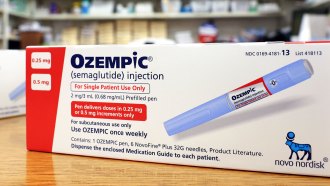 Health & Medicine
Health & MedicineWhy weight-loss drugs became more popular than ever this year
Ozempic and related drugs can drastically reduce body weight, and more potent versions are on the way. But questions remain about who should take them.
-
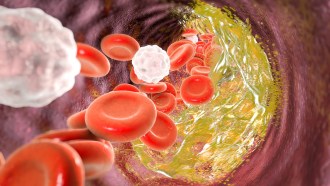 Health & Medicine
Health & MedicineA gene editing technique shows promise for lowering LDL cholesterol
In a trial of 10 people with familial hypercholesterolemia, a genetic medicine reduced levels of LDL cholesterol in the blood by up to 55 percent.
-
 Health & Medicine
Health & MedicineThe weight-loss drug Wegovy lowered heart attack risk in a large trial
Among 17,000 adults, those on semaglutide were less likely to experience nonfatal heart attacks and strokes or death due to cardiovascular disease.
-
 Health & Medicine
Health & MedicineBrain tissue may be fuel for marathon runners
Myelin, fatty tissue that insulates nerve cells in the brain, may be a renewable energy source for marathon runners and other endurance athletes.
-
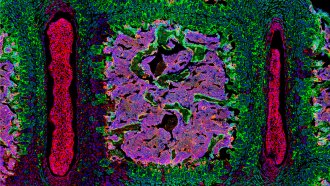 Health & Medicine
Health & MedicineNewly identified stem cells can lure breast cancer to the spine
A new type of stem cell discovered in mice and humans might explain why cancer that spreads to other body parts preferentially targets the spine.
-
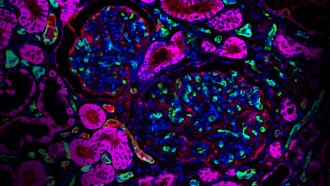 Health & Medicine
Health & MedicineA monkey survived two years with a miniature pig’s kidney
A new study is the latest in a string of efforts seeking to use other animal species to solve the global organ shortage in people.
-
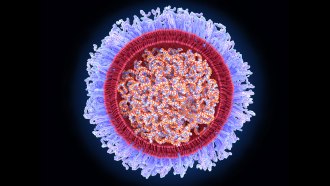 Health & Medicine
Health & MedicineEarly mRNA research that led to COVID-19 vaccines wins 2023 medicine Nobel Prize
Biochemists Katalin Karikó and Drew Weissman devised mRNA modifications to make vaccines that trigger good immune responses instead of harmful ones.
-
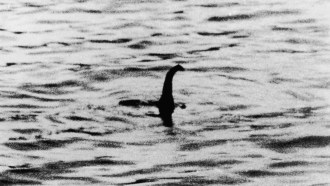 Animals
AnimalsSeen Bigfoot or the Loch Ness Monster? Data suggest the odds are low
Floe Foxon is a data scientist by day. But in his free time, he applies his skills to astronomy, cryptology and sightings of mythical creatures.
-
 Health & Medicine
Health & MedicineMouth taping may be a trending sleep hack, but the science behind it is slim
Mouth taping is big on social media, but few studies have evaluated it. Some evidence suggests that sealing the lips shut may help people with sleep apnea.
-
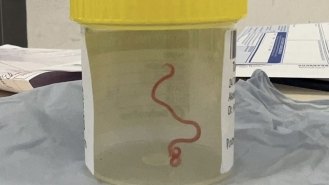 Health & Medicine
Health & MedicineDoctors found a live python parasite in a woman’s brain
The infection is the first known case of the worm Ophidascaris robertsi in a person. It’s not the only type of worm that can infect human brains.
-
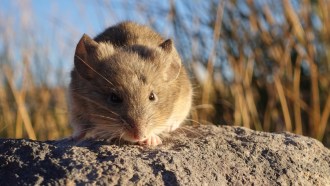 Animals
AnimalsThe world’s highest-dwelling mammal isn’t the only rodent at extreme elevation
After discovering a mouse living nearly 7,000 meters above sea level, scientists scoured other extreme environments to make sure the find wasn’t a fluke.